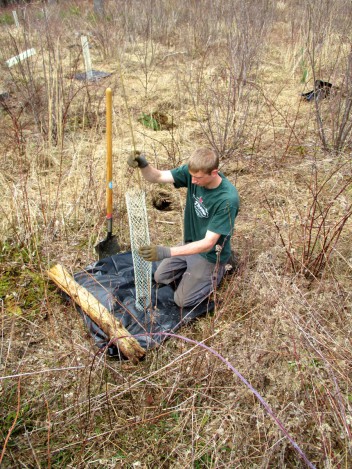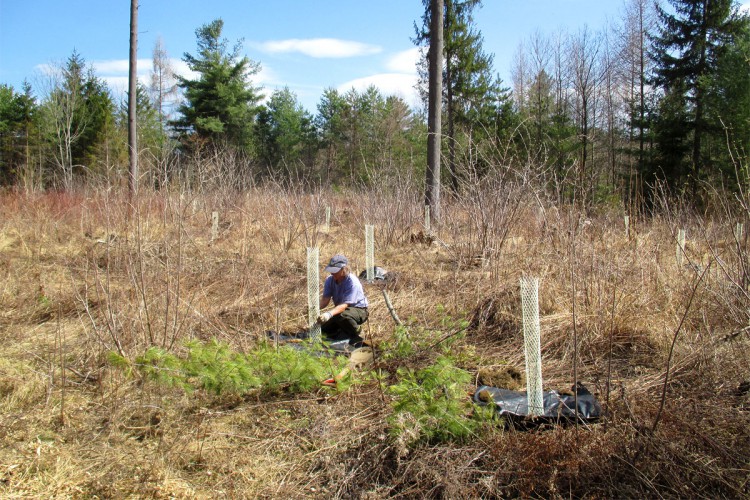Carl and Cheng-Wen Taylor approached Redstart in 2011 seeking help in treating non-native invasive plants on their property in Woodstock, Vermont.
Their goals were to slow the spread of the invasives through treatment and to replace them with native plantings. This active management would restore the ecological integrity of the property and improve habitat for wildlife. Redstart responded quickly, and Courtney Haynes began working closely with the Taylors and their consulting forester, Tii McLane, to address their goals.
Cost-Sharing Support to Treat Invasives
 In initial conversations with the Taylors, Courtney shared her knowledge of Natural Resource Conservation Service (NRCS) programs that provide cost-sharing support for landowners who implement conservation practices. The NRCS agreed to assist the Taylors with the cost of treating over 80 acres of non-native, invasive plants including black swallow-wort, Asiatic bittersweet, common buckthorn, honeysuckle, Autumn olive, Japanese and common barberry, and garlic mustard.
In initial conversations with the Taylors, Courtney shared her knowledge of Natural Resource Conservation Service (NRCS) programs that provide cost-sharing support for landowners who implement conservation practices. The NRCS agreed to assist the Taylors with the cost of treating over 80 acres of non-native, invasive plants including black swallow-wort, Asiatic bittersweet, common buckthorn, honeysuckle, Autumn olive, Japanese and common barberry, and garlic mustard.
Around the same time, Courtney and Tii began to plan the harvest of a mature Norway spruce plantation on the Taylors’ land. They decided it would be most efficient to have the logger cut mature non-native invasive plants in the understory with his harvesting equipment at the same time he cut the Norway spruce overstory. The season after the cutting, Redstart treated the re-sprouting invasive plants, resulting in a successful, as well as economical, way to reduce their population.
Restoring the Forest with Native Plants
Following the timber harvest and invasive plant treatment, Redstart worked with Tii to replant the area with native red oak, white oak, white pine, and black cherry—trees largely chosen for their wildlife habitat value. The Taylors also decided to maintain the diversity of wildlife habitats on their property through delayed mowing of their fields and implementing a 2-acre patch cut in their forest to develop much-needed early successional habitat.
In the coming years, the Taylors have committed to actively managing their property for timber as well as for wildlife, recreation, and aesthetics. They’ll be continuing to work with Tii and Redstart to achieve all of these goals.

